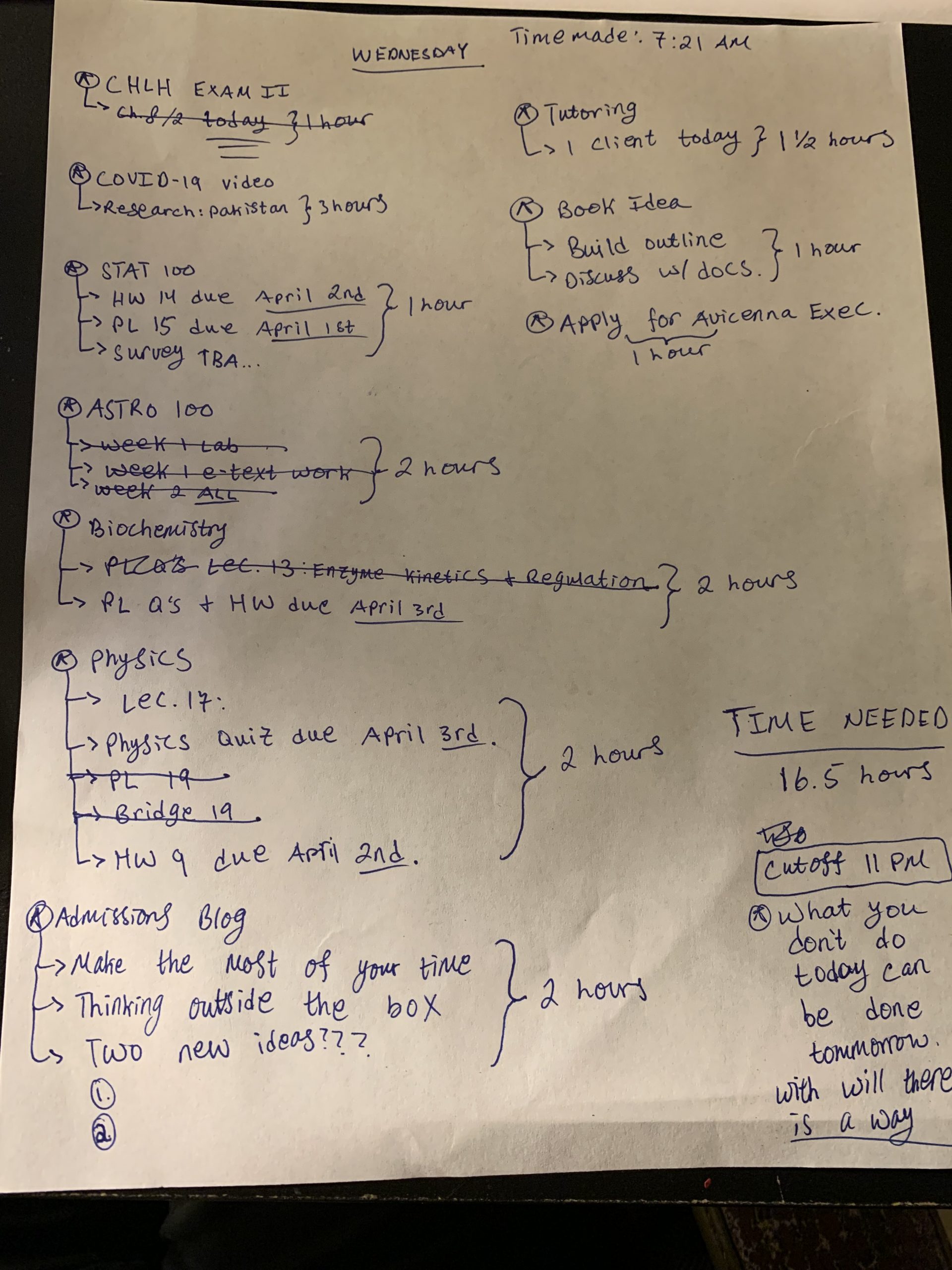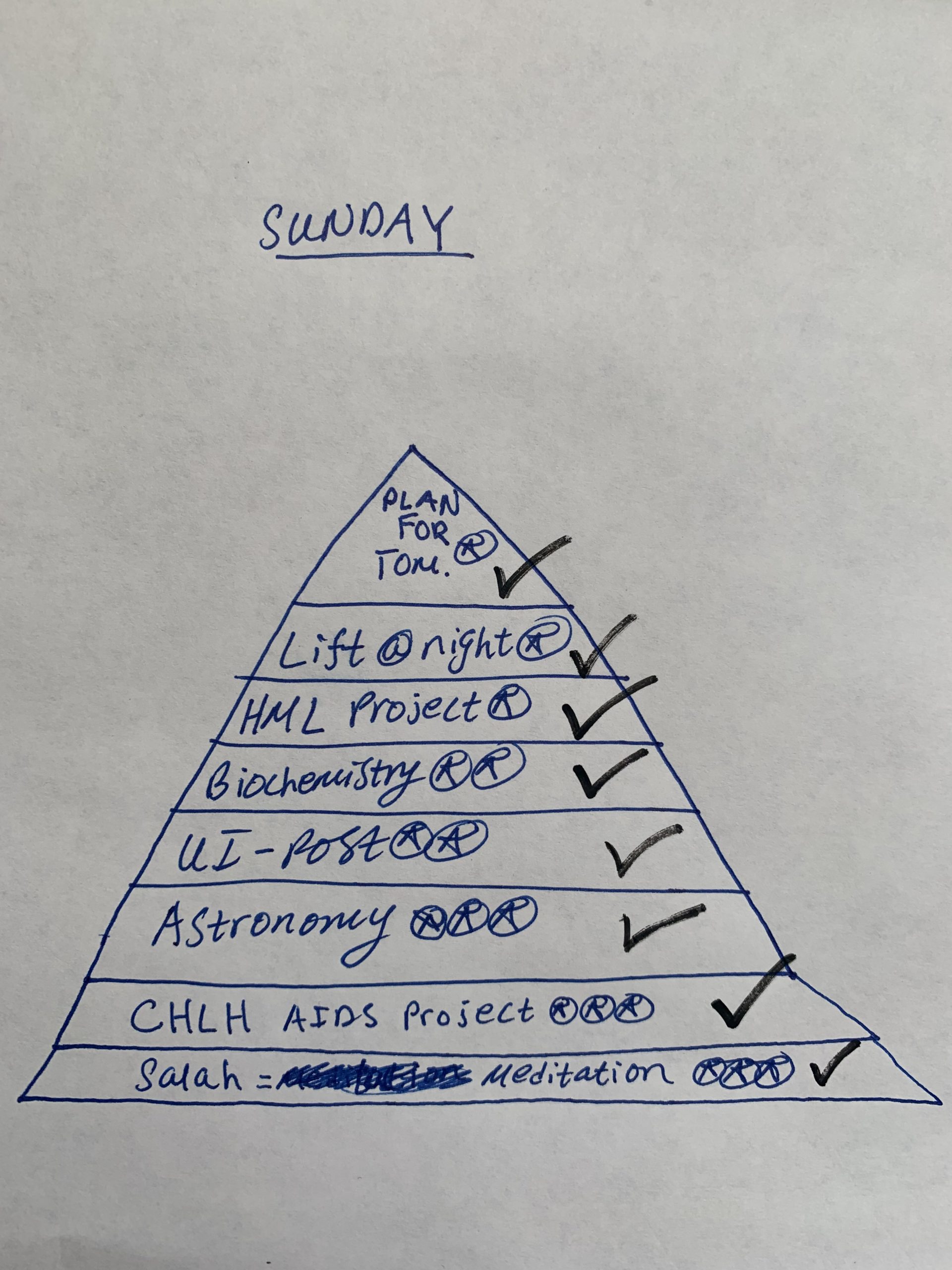You’re awake. Whatever pleasant dream (or lack thereof) you were in seconds ago has faded, and you’re now back in reality. Instantaneously, a thought enters your mind. Depending on what’s going on in your life, it may range from boredom to panic, or even a panic about boredom. You’ve got x hours until you’re back to where you started the night before, back to the moment before you fall asleep and wake to repeat the cycle.
Perhaps one of the most difficult things we have to come to terms with every day is our productivity. By this, I mean what we did (or didn’t) do with the amount of time we had in a given day. We are left wondering, “What if I had done x or stopped doing y?” and the end result is usually the same: We convince ourselves that x never gets done, and y is an inevitable compromise we have to make. We accept that there is no choice but to continue going through whatever pattern we’ve defined for ourselves, even if it means cheating us out of the greatest luxury we have in life—time.
Two Questions
I chose to write about this topic because, just like you, I too have and will continue to experience thoughts about what I could be doing to progress faster and make the most of my days before my days become hours, minutes, seconds, and then the cycle comes to a halt. I often grow frustrated with myself when I set out to accomplish a goal for a given day and fall short, and the next day the same pattern continues to dominate my behavior until something shakes me out of the rut of wasting my time. We all know that time is fleeting. We all believe that it has value. We all waste it anyway. Pause for a moment at the end of this sentence and ask yourself: Did I set a goal for today?
Now, pause at the end of this sentence and ask yourself: Did I take any steps to achieve my goal for today?
If you answered yes to the previous two questions, congratulations. You’re doing something. Although it seems simple, asking yourself this question each day will mold your mentality around productivity.
Checklists
Perception makes all the difference because our perception of reality is what shapes our overall experience of life. What we perceive becomes what we believe, and what we believe governs our behavior. A great deal of productive people I have met over the years have told me to make a checklist. They say it is more satisfying when they can cross things out. So, I did. The first day, I made a checklist. It looked like this:

Not my best work. My mistake with making this checklist was that I listed all the things I wanted to accomplish in one day without paying heed to how realistic it would be. Instead of taking on everything that’s on your mind that you’re eager to explore (a surefire way to make us want to ditch productivity altogether), try starting off slowly. Begin with a few goals for a day, and then add more if you’ve completed them. Keep going with this process, and you’ll find yourself that much happier getting your tasks done, and I can guarantee your sense of positivity will become that much greater. If you’d like to learn more about mindset improvement and goal identification, check out my post on developing a mindset oriented around success.
Proactive vs. Reactive
Our perspective shifts very easily, so why not try and shift it into a positive one? An important point to highlight here is that a positive perspective is not one in which you ignore problems; it is one in which you are proactive (not reactive) to issues as they arise. What distinguishes proactivity from reactivity? Take the example of a deadline for a project looming over your head. The proactive approach would be to think about a plan to meet your goal(s) and have everything completed by the deadline. Conversely, a reactive approach would be growing overwhelmed with stress and worry over how you’ll meet the deadline. This simple distinction is often undervalued in our minds. If we were to approach each challenge we come across with the mindset of how to solve rather than how to survive, we would be that much more productive—and more importantly, happy.
Importance Pyramids
What if there isn’t enough time in the day, you may wonder. Those of you reading who tend to overcrowd your schedules aren’t alone. This is something I struggle with almost every day. I have come to find that importance pyramids are a great way to combat the clutter.
Take for an example this dilemma. I have been meaning to begin working on a book. Each day, I create a problem in my head by thinking, “I didn’t do anything for that goal today. I’m in a rut. Maybe I should just stop now before I waste any more time dreaming that I’ll finish it.” Negativity. Had I kept on with this mindset, I would have ditched an idea that I felt passionate about.
Instead, I began to make a pyramid of importance each day. I need to focus on my classes and deadlines for established projects right now, for this idea is not something with nearly as many commitments solidified (unlike my classes and other projects in which I have to work together with other people). The level of importance behind each task of the day is marked clearly with stars (1 star being the least important for today and 3 stars being the most important). By creating this mental pyramid of importance, I put myself into a mindset of stepwise progression. This means that each task accomplished (from 3 stars to 1 star) is leading me up the pyramid. By the end of the day, I should be at the top of the pyramid, and I feel that much more accomplished.
The benefit of doing this, aside from a sense of accomplishment, is that each deadline is met, and progress is made. My time isn’t wasted because I don’t worry. Every moment spent worrying is a moment spent not working, and how can we honestly expect to succeed at anything if we don’t work for it? If you’re interested in making your own importance pyramid, here’s a photo of the one I made today.

Trial and Error
Much like everything in life, what works for some of us may not work for the rest of us. With this in mind, developing an understanding of your own goals, interests, and methods of staying motivated will be the best possible way to make the most of your time. One common misconception that people have with productivity and time management is that you need to be working towards making money, starting a new project, or developing skills at all times to be considered productive. This is a surefire way to ruin your mental health and send your stress levels through the roof. Why? The reason is simply because we need time to relax, be with family, and just breathe. Meditation, exercise, and downtime are essential in any productive schedule because progressing in our spiritual, physical, and mental health are all essential to keep our stress levels down and mindsets positive. In truth, productivity encompasses self-care just as much as it does everything else; it is for this reason that I highly recommend including your exercise, meditation, and leisure time into your schedule for the day.
In all honesty, I did not complete every task on that pyramid above. Even still, I went back the next day and completed what was remaining and checked it off. This kept my sense of accomplishment for the next day high because I didn’t leave anything unfinished, but rather had the dedication to the goals I’d taken the time to write down to go back and complete them.
The only true failure is giving up. If you find yourself losing motivation or drive at any point in this process, remember what made you want to start doing so in the first place. A quote that often comes to my mind is as follows:
O son of Adam, you’re just days.
Every time a day goes,
a part of you goes.
Hasan al Basri
Remembering that we are a collection of days is deeply powerful. Each time I recall this quote, I come to find myself looking to do more. One more rep in the gym, one more project to plan, one more breath to take, one more moment to live and feel alive.
If you have any questions or thoughts, feel free to comment below.
Wishing you nothing but the very best,
Maaz












Add comment